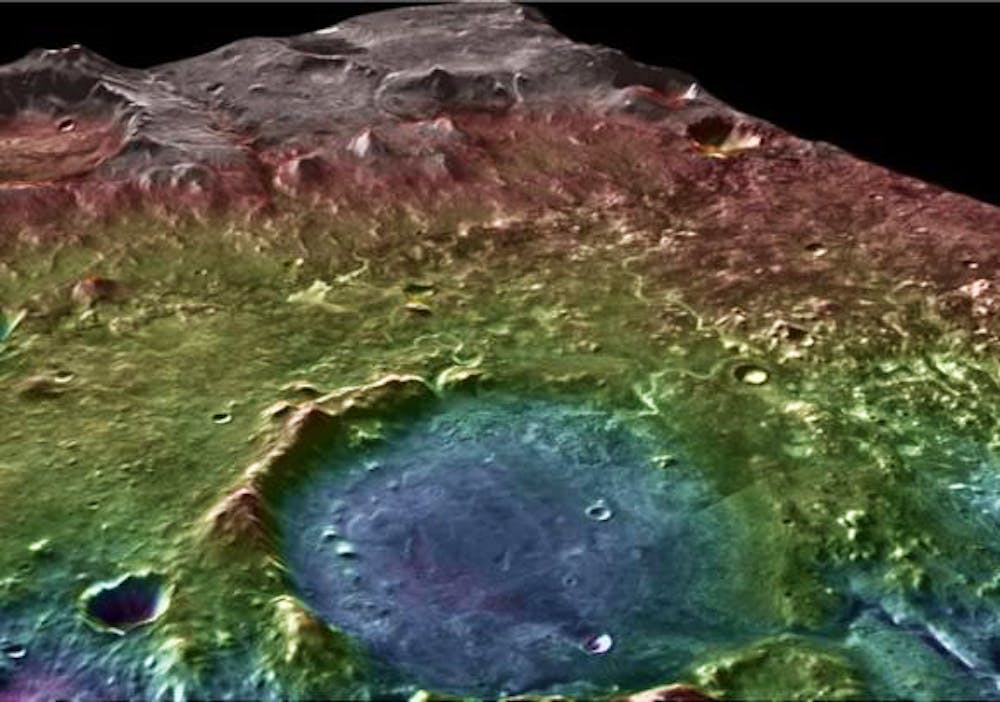The red planet made headlines in October after NASA announced evidence confirming the existence of flowing liquid water on Mars. University researchers in the department of earth, environmental and planetary sciences studying Mars have also had a busy month.
Earlier this month, a paper was published in the journal Planetary and Space Science by Eliott Rosenberg ’17, who received an Undergraduate Teaching and Research Award to conduct research regarding Martian valley formation with his adviser Jim Head PhD’69, professor of geological and earth, environmental and planetary sciences.
Meanwhile, Head and Jack Mustard PhD’90, professor of environmental studies and earth, environmental and planetary sciences, recently presented geological findings of landing sites for potential missions at a NASA conference in Houston.
“Science is the exploration of the unknown — it’s that simple,” Head said. “Adventure — that’s what it really is.”
Head’s career as a geologist has spanned over four decades, and he has conducted geological research from the Appalachians to Antarctica. His space career began in 1967 when, to his recollection, he stumbled upon a full-page NASA advertisement in a catalogue recruiting researchers. After responding to the advertisement, Head became an integral part of the Apollo program, training the first astronauts who went to the moon and conducting studies on the makeup of the planetary body.
Head returned to Brown in 1973, helping develop the University’s planetary program. Over the next several decades, he established international joint programs in space research, trained the chief scientist for NASA and worked on numerous projects in planetary exploration.
For Rosenberg, it was Head’s involvement in the first lunar missions that compelled him to take GEOL 0050: “Mars, Moon and the Earth,” the introductory course in planetary science, which Head teaches. A mathematical physics concentrator, Rosenberg soon became involved in Head’s lab.
“During my freshman year, (Head) suggested that we apply for an UTRA and research the valley networks on Mars,” Rosenberg wrote in an email to The Herald.
With Head, Rosenberg studied the valleys of Mars and the implications of water’s role in their formation. It took another year after the summer research to solidify the data and publish the results, he wrote.
Rosenberg wrote that he was initially hesitant to go into a field quite different from his concentration, but that summer research allowed him to apply what he was learning in another field of interest.
Head’s other work regarding Mars has also garnered attention: A proposal for landing sites developed by University professors is currently the first in NASA’s list of potential landing sites for human exploration, Head said.
Mustard, who helped present the proposal at the October conference in Houston, said the conference was one of three he has attended this month. Mustard’s research involves remote sensing — using tools from satellites and data to observe the minerals and geology of the land.
For Mustard, space exploration is vital for answering the most important questions, such as “does life exist elsewhere?” and “how does it?” He cited further research into the history of water on Mars and the chemical composition of the planets as necessary to answer these questions. He added that he believes researchers must use different technologies to study planets besides Earth, though the fundamental challenges are the same.
In the wake of these projects, University researchers will be involved with the 2020 Mars rover mission to Jezero crater, Head said. Mustard mentioned his particular interest in the Trojan asteroids orbiting Jupiter, arguing that they will be incredibly important for finding out more about the solar system’s history.
As doctoral graduates of Brown, Head and Mustard both said they are excited to remain a part of the University’s research programs. Head said planetary science is important for understanding Earth in context and expressed optimism that space research done at the University will provide information for decades to come.
“We’ve got Mars, we’ve got Venus. … It’s exciting new insight, and it’s going to feed Earth,” he said.





